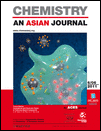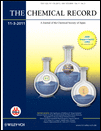前回に続き、化学ジャーナルの編集長から当ブログに特別に寄稿された「論文執筆・投稿にあたって留意すべきポイント」の第2回分を掲載します。寄稿してくれたのは、Chemistry - An Asian JournalのEditor-in-Chief, The Chemical RecordのManaging Editorを務め、日本人著者からの投稿も数多く見てきたWiley-VCHのDr. Brian Johnson @chemistrybrian です。日本人の投稿については、どのように書かれているでしょうか…?
-
Suggesting potential referees: This is completely optional for most journals, and editors are not obligated to contact the suggested referees. However, a good list of suggestions will always be taken into serious consideration by the editor. But caution: Suggesting one’s academic “buddies” (co-workers, close collaborators) can be seen as unethical, and a good editor knows when authors are suggesting only their buddies. Such a practice can also leave an unfavorable impression on the editor.
-
Conflicts of interest: Editors will generally honor requests that certain referees be excluded from the peer review of your paper. In addition, authors are required by ethical guidelines to declare any conflicts of interest that may create a positive bias during peer review, especially regarding funding of the work.
-
Following correct format: Japanese authors are among the best in the world at delivering manuscripts that follow the journal’s guidelines closely. I have seen from many referee reports that the extra care that Japanese authors give to the quality of their manuscripts makes the referees’ job easier. And as referees also have limited time, this attention to detail almost certainly influences the overall assessments positively. Keep up the good work!
-
Simple English: I have seen countless referee reports in which it was clear that the referee became frustrated by the difficulty in reading the English, and this frustration led to impatience and (sometimes unfairly) negative assessments. For publishing in international journals, clear communication is the key, and I always suggest using simple sentence structures, even for native speakers. English language services and language polishers spend more of their effort in simplifying overly complex sentences than they do on grammar and spelling. However, if authors can adopt a simple sentence structure from the beginning, their paper will run more smoothly through every phase of the publishing process.
(To be continued)
(日本語訳)
-
査読候補者の推薦: ほとんどのジャーナルでこれは任意記入の項目となっていて、編集者は必ずしも著者が推薦した査読者にコンタクトする義務はありません。とはいえ、推薦された査読者が適切であれば、編集者はきっと真剣に考慮することでしょう。しかし注意すべき点があります。自分の研究上の「仲間」(同僚や密接な共同研究者)を査読者として推薦すると、倫理に反する行為とみなされる場合があります。また、優れた編集者は、著者が自分の研究仲間だけを推薦したらそれと気づくものです。そのような行為は、編集者に好ましくない印象を残すかもしれません。
-
利益相反: 編集者は一般に、特定の人物を査読者にしないようにと著者から要求があれば尊重します。一方、著者は倫理ガイドラインによって、研究資金提供など、査読の過程で著者に有利なバイアスをもたらすような利益相反があれば申告するよう義務付けられています。
-
正しいフォーマットに従う: 日本人の著者は、ジャーナルの規定を正確に守って原稿を提出することにかけては、世界でもトップクラスに入っています。多くの査読者のレポートに目を通してきた私には、日本人著者が原稿のクオリティに特に気を配ることによって、査読者の仕事を楽にしていることが分かります。査読者も忙しいですから、そのような細部への気配りは、全体的な評価が有利になるよう働いていると考えて間違いないでしょう。この調子で続けて下さい!
-
シンプルな英語: 査読者のレポートを読んでいると、査読者が原稿の英語を読むのにイライラして、ついにはたまりかねてその論文に(時には不当なほど)悪い評価を与えてしまったと分かることが頻繁にあります。国際的なジャーナルで論文を出版するにあたっては、表現の明瞭さが重要な鍵となります。私は、たとえ相手が英語のネイティブスピーカーであっても、シンプルな構文を使うよう常に求めてきました。英文校正サービスや添削者は、文法やスペルの間違いを直すよりも、むしろ過度に複雑な構文をシンプルに変えることに多くの努力を割いているものです。しかし、もし著者が最初からシンプルな構文で書くことができれば、その論文は出版のすべての過程をもっとスムーズに通過することができるでしょう。
(次回に続く)
いかがでしたか? 最後の第3回は、今週金曜日に掲載の予定です。お楽しみに!!(追加: 第3回をこちらに掲載しました!)






 ChemistryViews (無料ニュースサイト)
ChemistryViews (無料ニュースサイト) Facebookページ: Chemistry by Wiley
Facebookページ: Chemistry by Wiley Wiley Asia Blog
Wiley Asia Blog Wiley Job Network(求人サイト)
Wiley Job Network(求人サイト) ワイリー・ヘルスサイエンスカフェ(医学・看護学・獣医学ブログ)
ワイリー・ヘルスサイエンスカフェ(医学・看護学・獣医学ブログ) 電子プラットフォーム Wiley Online Library
電子プラットフォーム Wiley Online Library Neutrino WebShop(株式会社ニュートリノ)
Neutrino WebShop(株式会社ニュートリノ) オーヴィス株式会社(理工洋書専門書店)
オーヴィス株式会社(理工洋書専門書店)